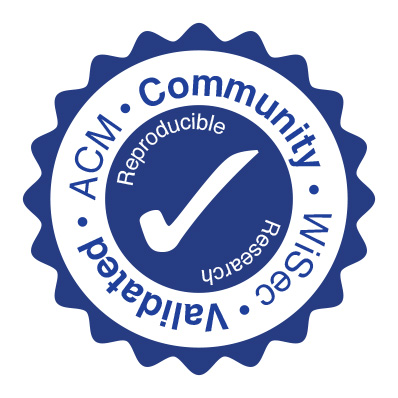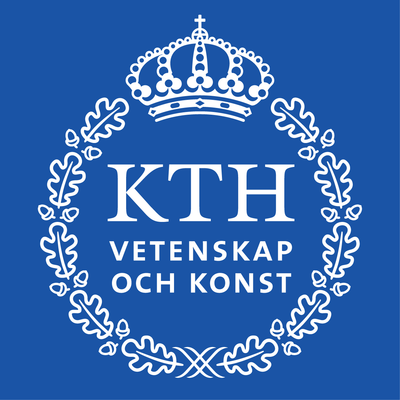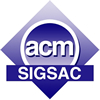Replicability Label
This year WiSec continues the effort pioneered in 2017, towards supporting greater "reproducibility" in mobile and wireless security experimental research. The goal of this process is to increase the impact of mobile and wireless security research, enable dissemination of research results, code and experimental setups, and to enable the research community to build on prior experimental results. Along the lines of the 2017 initiative, we provide a "replicability label," to recognize papers whose experimental results were replicated by an independent committee. The terms ‘reproducibility' and ‘replicability' are often used interchangeably. But we elect this year on the term "replicable results," as this better matches the whole process (see https://www.acm.org/publications/policies/artifact-review-badging).
Authors of accepted papers can participate in this voluntary process by submitting supporting evidence of their experiments' replicability, following the instructions below. Authors are encouraged to plan ahead when running their experiments, in order to minimise the overhead of applying for this label.
In this first iteration, the authors will:
- Prepare a VirtualBox VM with all data/tools installed. It is expected that the authors include within this VM raw data (without any pre-processing) and all the scripts used for pre-processing.
- For each graph/table, provide a directory (Fig_XXX, Table_XXX) which contains a script that enables the committee to regenerate that object.
- Include in the home directory a readme file, according to the following format. The authors can use the following script to generate information about the configuration of the machine that was used for the experiments.
- Provide a link to downloading the VM (e.g, google drive or dropbox), or request credentials to upload the VM to the conference storage system.
- Submit a request on easychair and include a link within the abstract to your VM. [Deadline: May 10, 2018]
If the committee can verify that all relevant data sets were included and the graphs/tables can be regenerated based on this, the committee will grant a Replicability Label and also provide a report on the regeneration process.
Replicability Committee:- Guevara Noubir (co-chair), Northeastern University
- Panos Papadimitratos (co-chair), KTH (Royal Institute of Technology)
- Hongyu Jin, KTH (Royal Institute of Technology)
- Mohammad Khodaei, KTH (Royal Institute of Technology)
- Paul Patras, University of Edinburgh
- Aanjhan Ranganathan, Northeastern University
Accepted Papers
Anindya Maiti, Ryan Heard, Mohd Sabra (Wichita State University); Murtuza Jadliwala (University of Texas at San Antonio)
Kenneth Block, Guevara Noubir (Northeastern University)
Raphael Spreitzer, Gerald Palfinger, Stefan Mangard (Graz University of Technology)
Mohammad Khodaei, Panos Papadimitratos (KTH Royal Institute of Technology)


Important Dates
- Abstract submission: February 22, 2018 (11:59:59 PM EST) [Open until Paper Deadline]
- Paper submission: March 8, 2018 (11:59:59 PM EST) [Final Deadline, extended from March 1]
- Paper notification: April 9, 2018
- Paper camera-ready submission: May 10, 2018
- Replicability label application: May 10, 2018
-
Poster/demo proposal submission:
May 10, 2018 - Poster/demo notification: May 15, 2018
- Registration for authors (papers and posters/demos): May 17, 2018
- Early registration (to reserve spot in social events): June 3, 2018
- WiSec 2018: June 18 to June 20, 2018
Sponsored by
ACM WiSec 2018
11th ACM Conference on Security
and Privacy in Wireless and
Mobile Networks
Stockholm, Sweden
June 18 - 20, 2018









